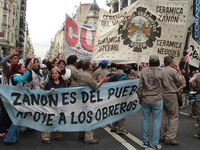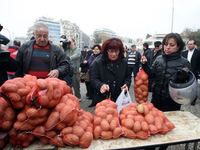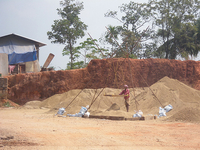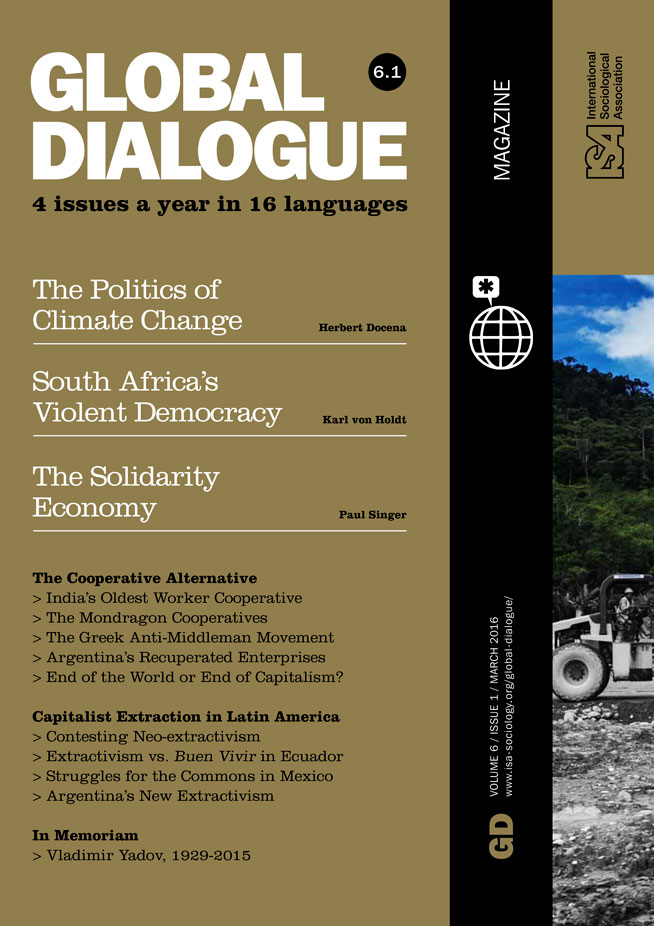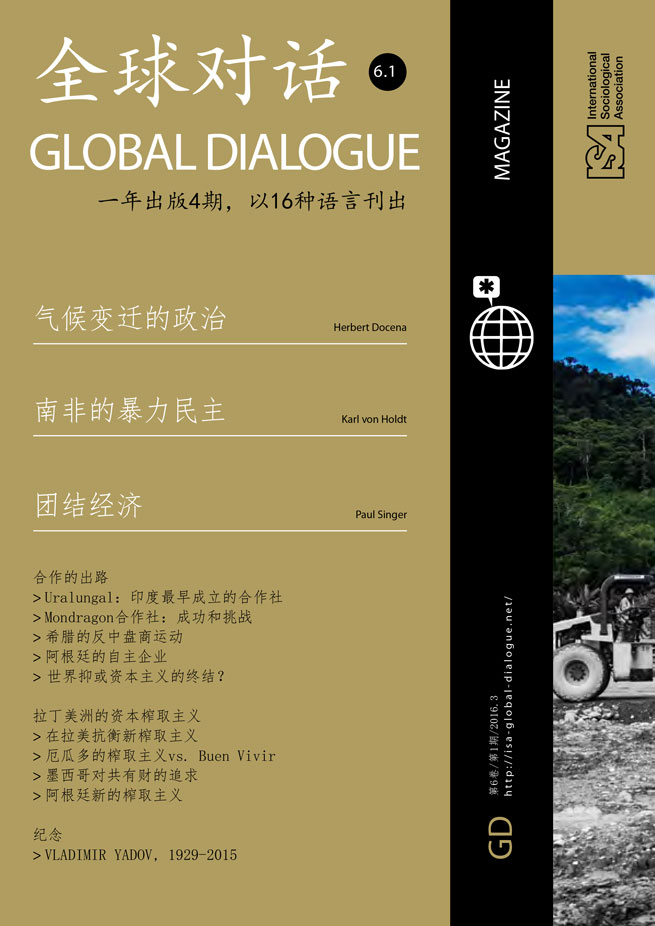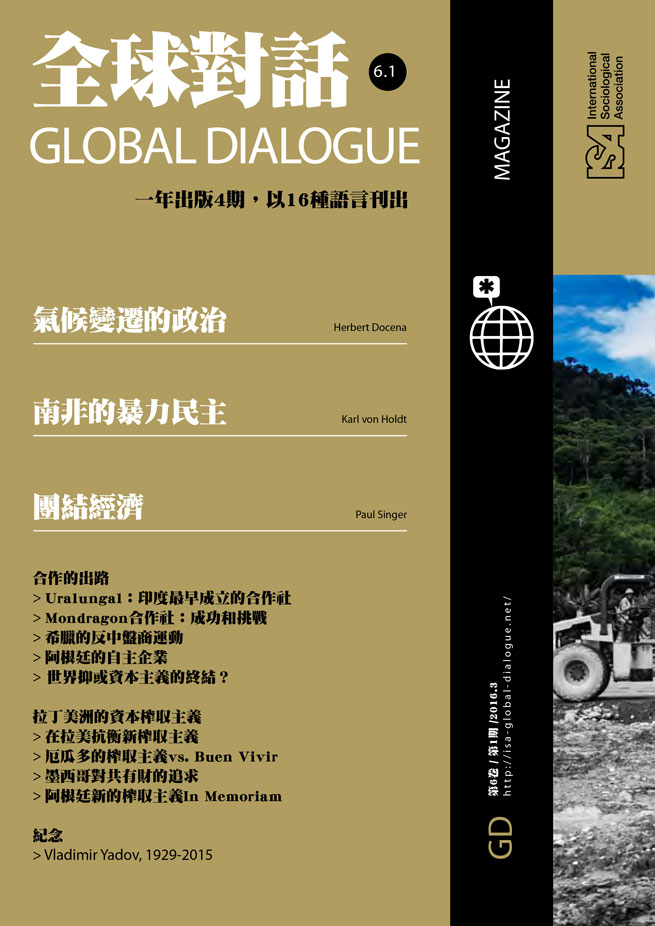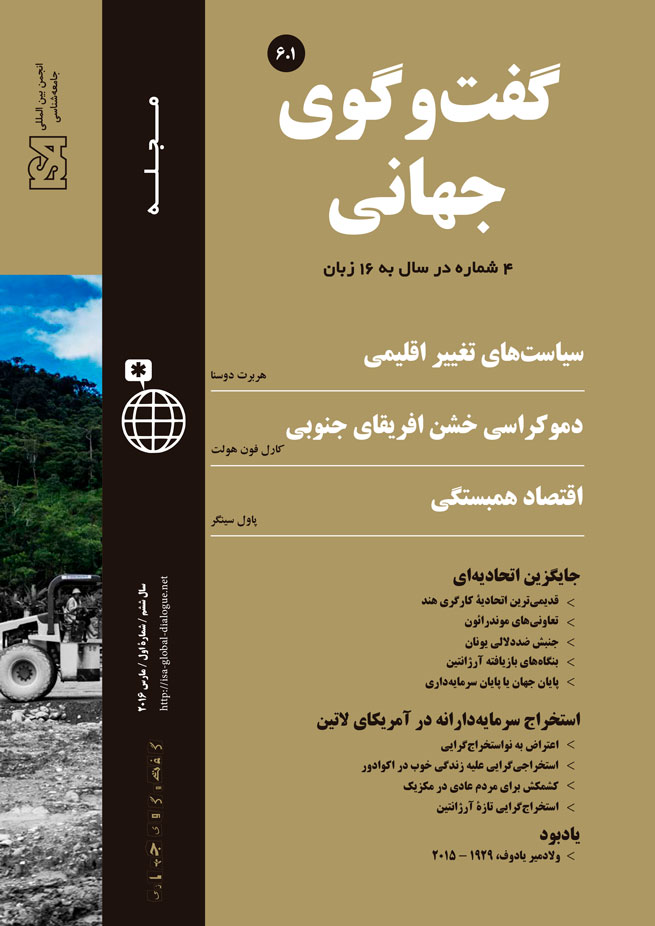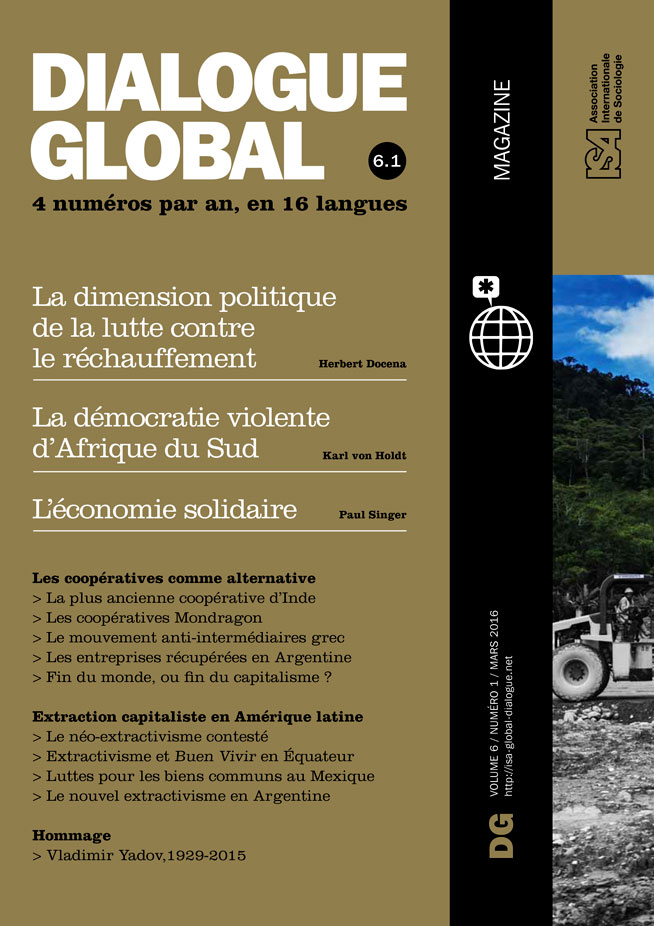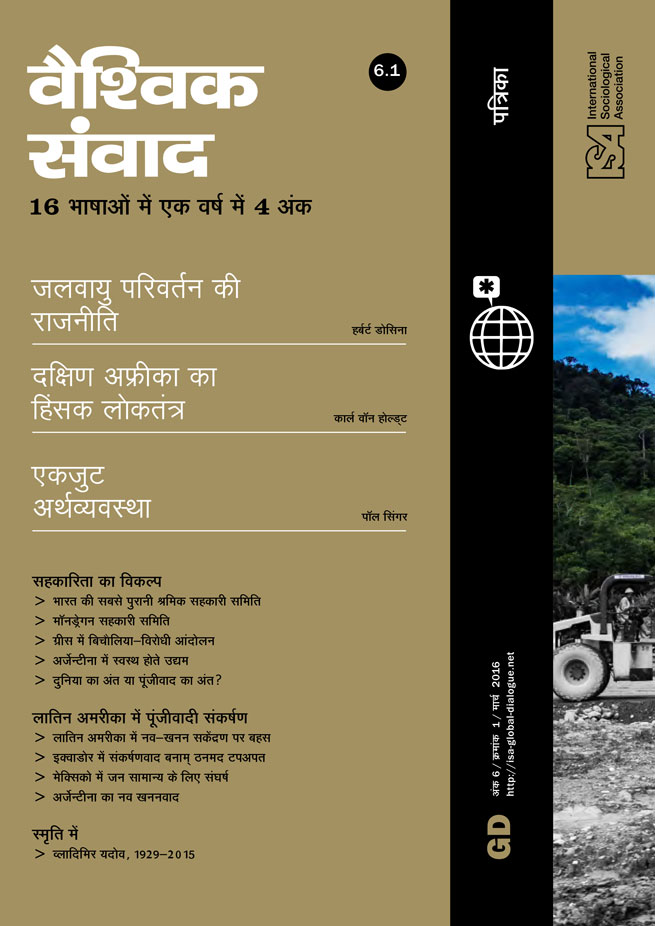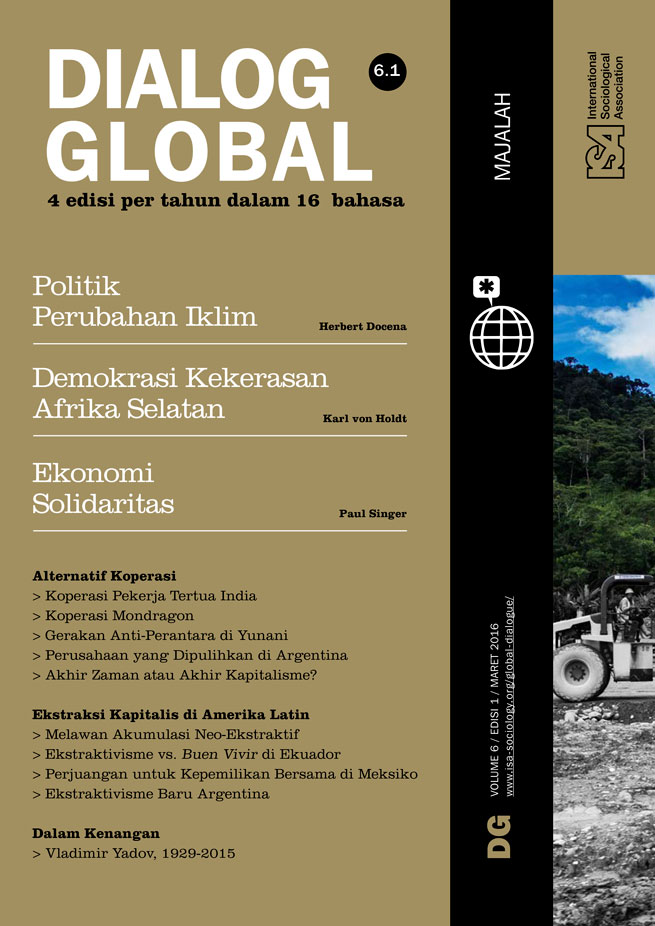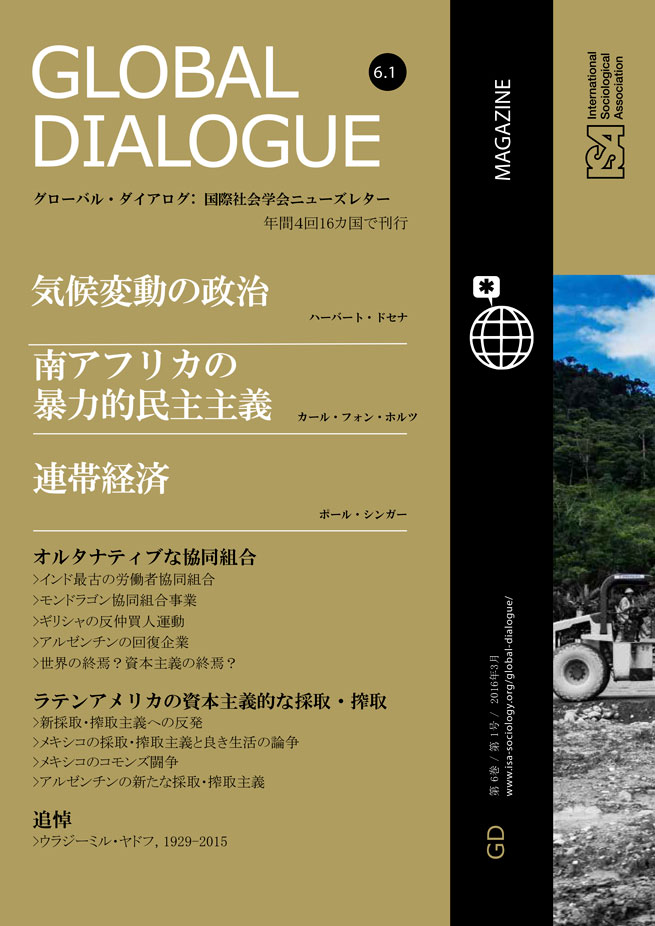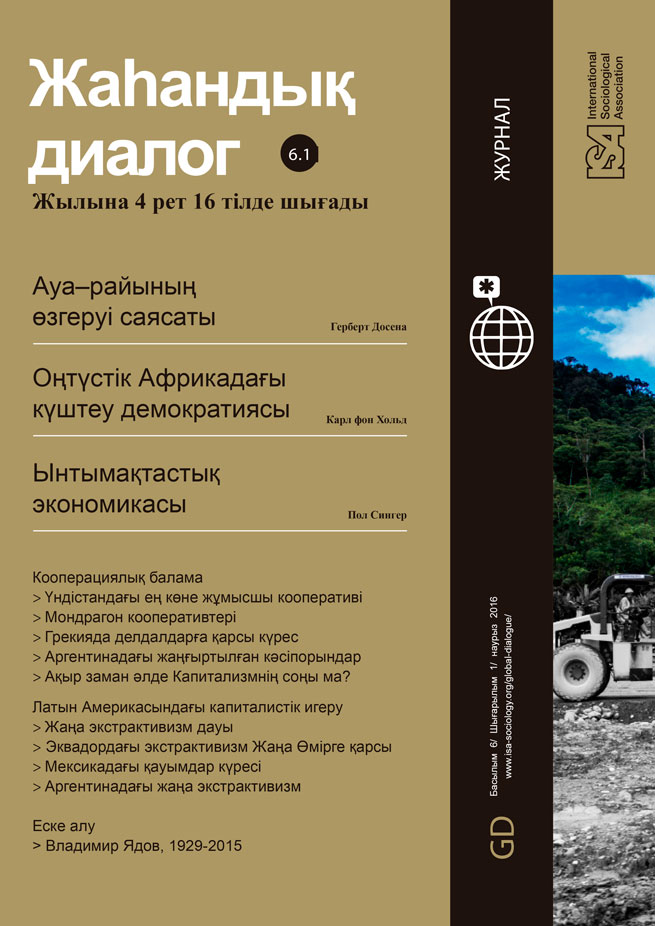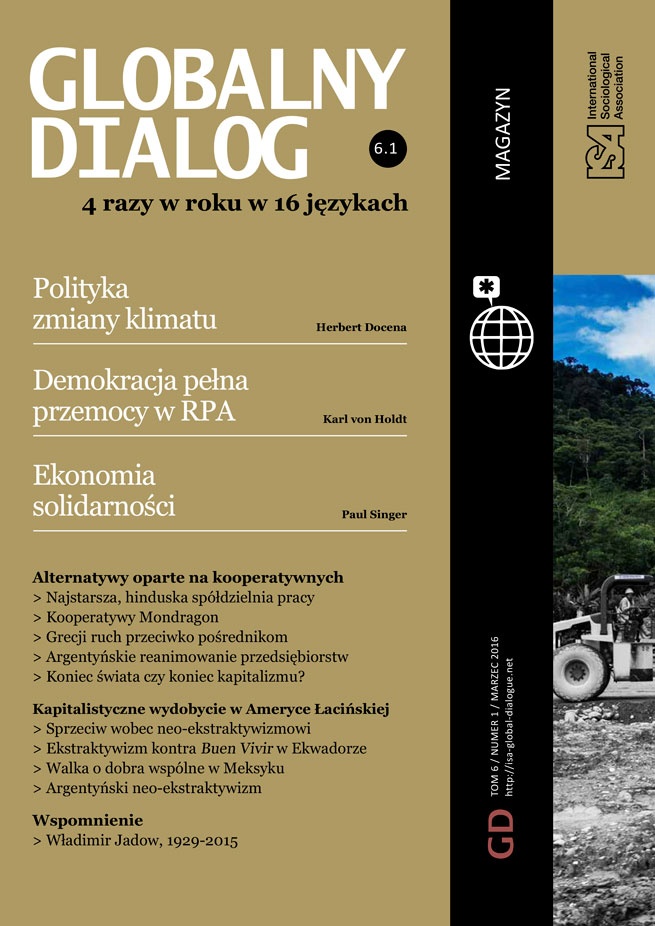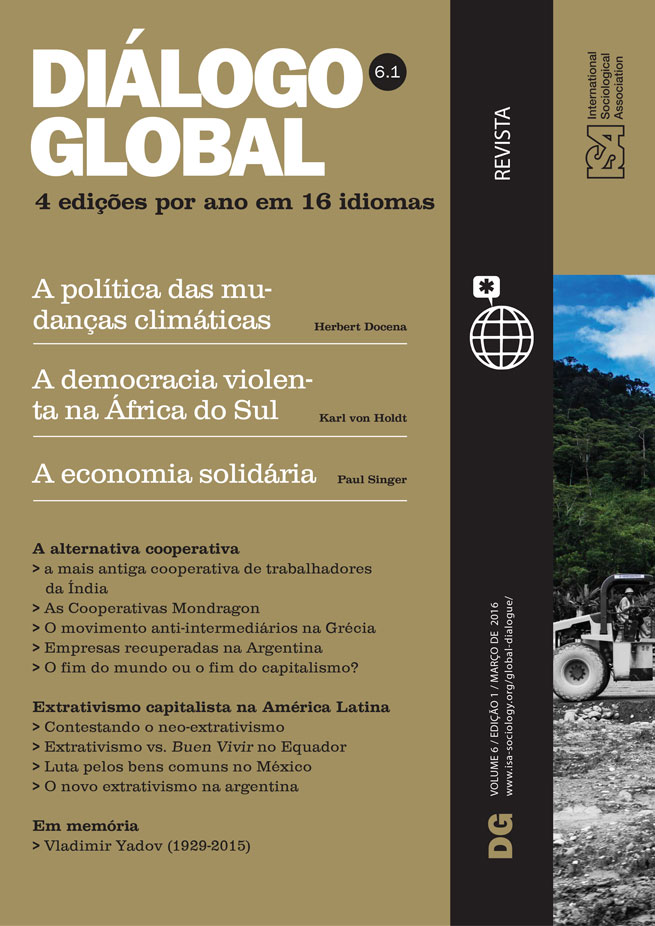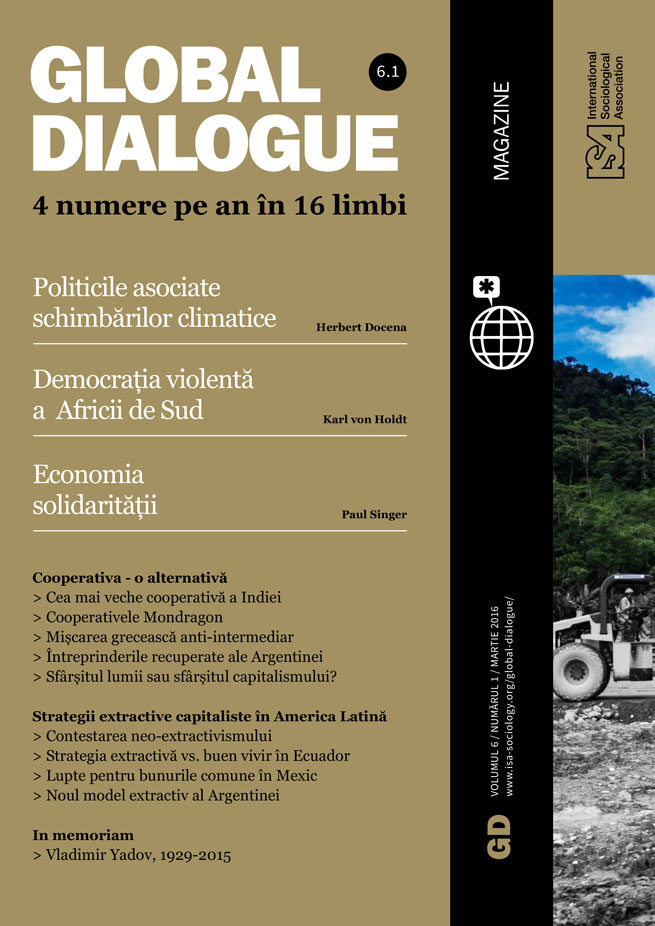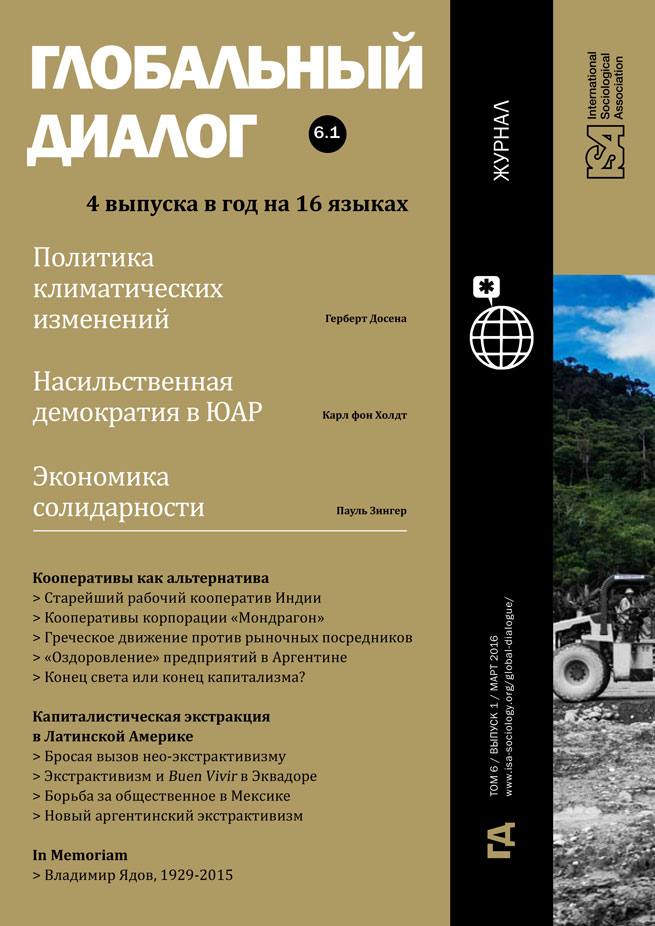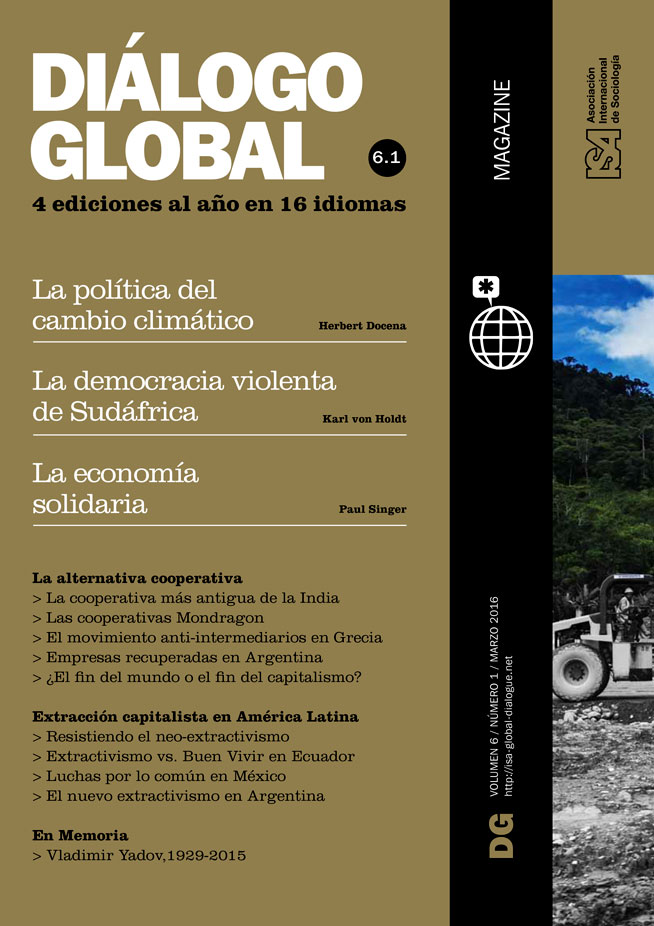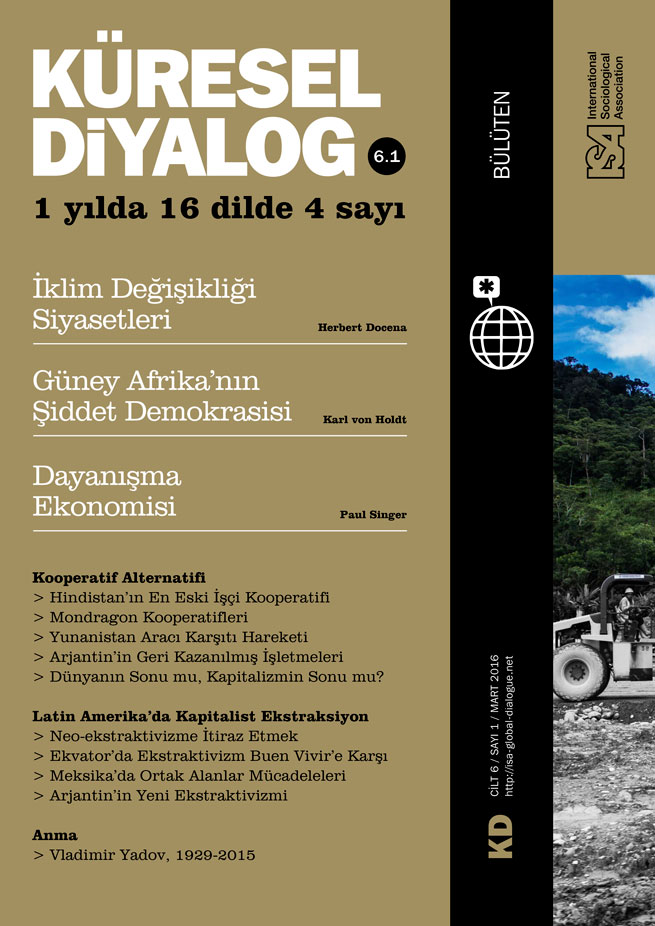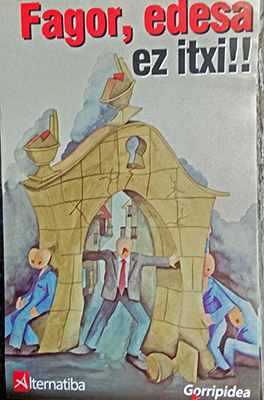In the wake of financial crisis and anti-austerity uprisings, there is growing interest in the US and Europe in nurturing non-capitalist social relations and solidarity economies: academics and advocates argue that worker-owned coops secure jobs, give workers control, and encourage solidarity. These transformations, they suggest, sow seeds of socialism, or at least a more democratic and just capitalism – a welcome message after decades of virulent neoliberalism.
Frequently, Mondragon in the Spanish Basque region – widely considered the most successful worker-owned cooperative enterprise in the world – is discussed as a model. Started in the 1950s as a Catholic Action project, today, the Mondragon group includes 257 financial, industrial, retail, and research and development concerns, employing approximately 74,000 people. The coops manufacture everything from commercial kitchen equipment (under the flagship Fagor brand) to industrial robots; the retail giant Eroski boasts 2,000 outlets throughout Europe; and the bank Caja Laboral and social security coop provide financial services to members and affiliated businesses. The coops are not unionized, and they have no outside stockholders. Instead, each worker or manager invests as a member in the firm, and has one vote in its general assembly. Each coop is represented at the Cooperative Congress, where system-wide plans and business decisions are made.
Size and success make Mondragon unique among cooperative experiments, and there is a great deal more that is admirable. The coops have retained members’ jobs in Spain’s Basque country even during economic crises. Manifesting an ethos of solidarity, members accept salary cuts, invest additional funds, and transfer between coops when necessary. Mondragon limits its highest managerial salary to about nine times the pay of its lowest-paid members, a remarkably flat scale compared to Spain’s overall ratio of about 127:1. Mondragon’s core principle, the sovereignty of labor over capital, is visible in the distribution of surplus to members’ capital accounts in the Caja Laboral, where they are held as private savings but made available for investment in the coop group.
But while Mondragon is often a starting point for those who want a real world alternative to capitalism, critical questions about the cooperatives’ rank-and-file workers, working conditions, and class are too often sidelined.
Although its coops are concentrated in the Basque region, Mondragon went global in 1990, and now controls some 100 foreign subsidiaries and joint ventures – mainly in developing and post-socialist countries, with low wages or expanding markets. These firms are not worker-owned, and employees do not enjoy the same rights or privileges given coop members. Instead, they are wage laborers. Even in the Basque country and Spain, industrial and retail coops employ significant numbers of temporary workers on short-term contracts. Today, only about one-half of Mondragon’s businesses are cooperatives, and only one-third of its employees are members.
In 2013, Fagor Electrodomésticos (the home appliance division) declared bankruptcy, a victim of the 2008 financial crisis that shocked the Spanish housing market and home appliance sector. The Mondragon group bankrolled Fagor for years, but the brand’s investments in 18 plants across 6 countries became ever-more burdensome, until the affiliated Mondragon coops were no longer willing to save Fagor. The bankruptcy threatened 5,600 jobs (down from 11,000 before the bubble.)
With a population of 25,000, this hit the city of Mondragón hard. Fagor members in Mondragón and nearby towns took early retirement or transferred to other coops, but local contract workers and 3,500 employees of Fagor subsidiaries were not similarly protected. Their fate, and the conditions of employees in other coop subsidiaries, are as much a part of the Mondragon story as are coop principles, democratic structures, and the distribution of surplus to members.
In Wroclaw, Poland, a 2008 strike over low pay and anti-union repression raised questions about Fagor’s three-tier labor force, with coop members in the Basque country, temporary workers throughout Spain, and wage laborers in subsidiaries. Does job security, decent pay, and workplace participation in the Basque country rest upon exploitation elsewhere?
A study of Mondragon subsidiaries in China comparing coop-owned factories with foreign-owned capitalist firms found that pay was low, hours long, and conditions harsh. Just like their capitalist competitors, Mondragon coops invested in China to manufacture labor-intensive goods cheaply and to be near emerging markets – a strategy coop members accepted when they voted to pursue an international strategy.
Can subsidiaries be converted into coops? Distinct national legal frameworks make this difficult, although the 2003 Cooperative Congress called for “social expansion” to extend participation and democracy. Mondragon’s non-profit organization is hoping to strengthen a global social economy network, helping the United Steel Workers to develop unionized coops in the US, and working with a recently-launched commercial laundry in Pittsburgh. Nevertheless, Mondragon’s subsidiaries still operate like standard firms, even though their aim is not to maximize profit for stockholders but to preserve coops and jobs in the Basque country.
Many analysts trust the Mondragon group to treat non-member employees well, pointing to efforts to educate workers in Mexico and the coop conversion of a private enterprise in Galicia, Spain. Others, however, argue that Mondragon’s global strategy proves cooperatives cannot survive in a capitalist sea: facing competition, coops either degenerate into capitalist firms, or founder.
These problems have a longer history, however. In the late 1980s, I found that shop-floor conditions, rank-and-file participation in decision making, and workers’ identification in a Fagor coop were no better than at a neighboring capitalist factory with a unionized workforce. Furthermore, coop members showed little solidarity with the Basque labor movement – at the time, part of an activist leftist coalition. As an institution, Mondragon steered clear of these politics, and coop members stayed on the job while local metal-sector workers went on strike.
Mondragon may appear a haven of non-capitalism, but there are important lessons in its lived experiences, particularly if we put workers – members, contract workers, wage laborers – and working-class movements at the center. What is the role of coops in building a broad-based labor and social movement, and how might Mondragon’s egalitarian impulses strengthen a wider political vision? Mondragon offers a starting point for thinking about non-capitalism – but its example is as valuable for the hard questions it poses about class and power as for the alternative business model it embodies.
Sharryn Kasmir, Hofstra University, USA <sharryn.m.kasmir@hofstra.edu>

